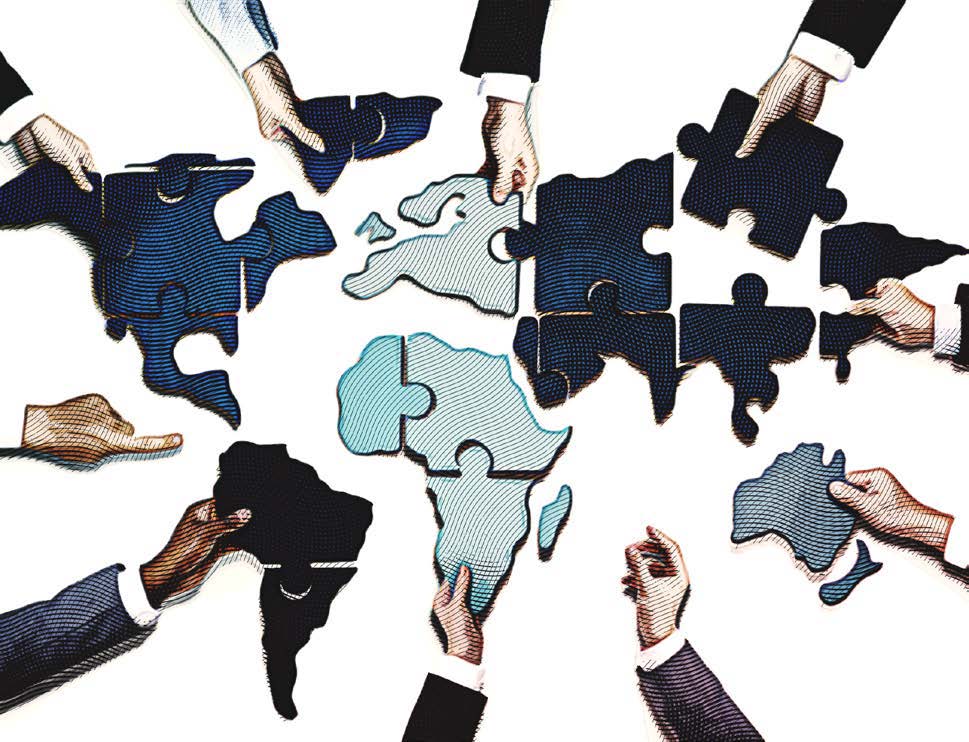Inclusive growth in a changing world
OECD secretary general Angel Gurría tells John Kirton where the organisation is placing focus – from emerging technologies and ensuring social protection follows the worker to solving global issues with multilateral approaches
In which areas has the Organisation for Economic Co-operation and Development been most engaged in working with the G20 this year?
The first is the digital economy and the second is the development of emerging technologies, including data management and flows and artificial intelligence, where we’re working on a set of principles. We’re also working with the Japanese on quality infrastructure, regarding environmental, social, governance and integrity standards and the massive gap in financing.
There is also tax, with the automatic exchange of information, as well as base erosion and profit shifting. There’s the Global Forum on Steel Excess Capacity, from the 2016 Hangzhou Summit, the 25 by 25 commitment on closing the gender gap in the workforce, and the revised code of liberalisation of capital movements. We continue to report twice a year on trade and investment issues.
For Japan, ageing is a very big issue. It also affects Korea, Italy, Spain and Germany. The impact of ageing on the labour market is very important.
What are the toughest issues for Osaka?
The elephants in the room are trade and climate. First, on the resolution of the China-US trade dispute, as long as the two parties continue to talk, there’s hope. Second, on climate change, we seem to be regressing rather than progressing. Emissions are going up again.
What are your priorities for the Osaka Summit?
Digital and tax are very important. We have to present to the finance ministers in Fukuoka and the leaders in Osaka the components of the end game and work on the specifics for the roadmap to be delivered in 2020.
What does the OECD recommend regarding the impact of automation on jobs and work?
First of all, a good diagnosis because countries start from different points. Second, a continuum that starts with formal education, from early childhood, through primary, secondary, high secondary and then tertiary education, but then goes into vocational training and lifelong learning. It’s about skills, upskilling and reskilling. Classification of jobs is crucial. If you get classification right, you immediately see some solutions. And how does one protect workers when there’s a tendency towards lower unionisation? Typically the workers in digital jobs are very independent individuals, but they may end up with no protection of any kind. How can social protection follow the worker and not the job?
What message you would like to highlight for the Osaka Summit?
The world has changed since the 2008 global financial crisis, when we started having G20 summits. China has emerged. India, Brazil, Indonesia and South Africa are leaders in their own regions and are influential globally. So the G20 offers a very positive, constructive form of governance because it is so representative, with 20 members, and participants such as the African Union and the Association of Southeast Asian Nations. It contains very developed countries, emerging economies and even underdeveloped countries in relative terms. It is crucial that they work together so there is consistency in policies to reinforce each other, rather than compete with or cancel each other.
At this time of uncertainty – a deceleration in the world economy, and ebbing trade and investment flows – having the G20 becomes doubly important. It’s a forum for discussion and raising awareness that delivers a direction of where things should go, so at least no one goes in the obviously opposite direction. It also confirms that global issues can only be dealt with through global, multilateral approaches.
How is your work progressing with Saudi Arabia for its G20 summit in 2020?
We are working on their priorities. It is going to be a crucial year for the taxation of the digital economy because the deadline is 2020. It is the same for artificial intelligence and data. Much will depend on what happens in the next few months on trade and climate change.
The Saudis will watch very carefully what happens in Osaka, but also at the World Trade Organization and elsewhere. There will be a summit on climate change in New York in September. All these will be very big moments, with all the countries in the world getting together and expressing how far they would like to go. Here again, the G20 is an important natural leader.
Learn more












